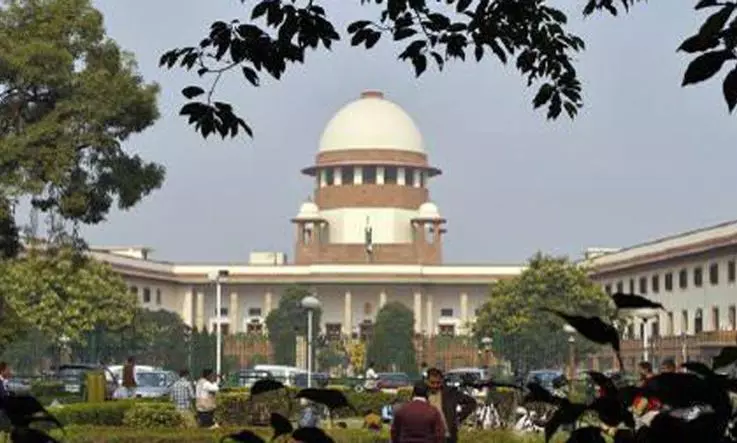
SC firm on its decision, Not to reopen decision on reservation in promotion
text_fieldsNew Delhi: The Supreme Court Tuesday said it would not reopen its decision on granting reservation in promotions to Scheduled Castes (SCs) and Scheduled Tribes (STs) as it was for the states to decide how they implement it.
Taking up various pleas pertaining to alleged hurdles in granting reservation in promotions to SCs and STs in various states, a three-judge bench headed by Justice Nageswara Rao directed the Advocate on Records of state governments to identify issues peculiar to them and submit those within two weeks.
The bench, also comprising Justices Sanjiv Khannna and B R Gavai noted that in its earlier order, the state governments were directed to finalise the issues which are peculiar to them so that court can proceed in the matter.
The issues framed by the Attorney General K K Venugopal and the ones circulated by others are enhancing the scope of cases, it said.
Venugopal submitted before the apex court that nearly all these issues have been covered by judgements of the top court and he would give a background of all the cases on issue of reservation since the Indira Sawhney case.
Senior advocate Indira Jaising contended that the issue which remains open is benchmarks for adequacy on how a state will decide on which groups are backwards.
The Attorney General said the problem of Union of India is that there are three interim HC orders passed out of which two say that promotions can continue to be made, while one HC has issued status quo orders on promotions.
"The Government of India has 1,400 posts (secretariat level) stagnating where no promotions could be made on a regular basis because all three orders dealt with regular promotions. The issue is whether the promotions for regular appointments can be continued to be made, and whether it affects the reserved seats.
"There are another 2,500 posts stagnating for years due to status quo orders relating to regular promotions. Government wants to make those promotions on ad hoc basis without any rights," Venugopal said while seeking a stay on a contempt plea against the government official.
Senior advocate Meenakshi Arora said if the matter is being kept after two weeks then the contempt plea can be heard on that date.
Senior advocate P S Patwalia, appearing for Maharashtra and Bihar, said the court will have to examine how you arrive at what is the quantifiable data, adding that 60 per cent posts are lying vacant in Bihar.
The top court said it has already passed orders on how to consider backwardness and it cannot prescribe policy further.
The top court then ordered, "Pursuant to earlier orders passed by this court, AG has circulated a note on the issues that arise for consideration in these matters. Issues identified by the states of Maharashtra and Tripura were also placed before this court. Issues have been given separately to AG by Sr Lawyer Indira Jaising and Rajeev Dhavan. The AG submitted that there is no need for reopening the law laid down by this court.
"In respect of interpretation of Article 16 and 16(4)(a) it is submitted that judgment delivered by this court would clear all issues which arise for consideration. It has been brought to our notice that issues peculiar to states can be grouped in 11 categories. There is an order already on order passed by this court that states have to identify the issues which arise in each state and furnish a copy to AG".
Earlier, Maharashtra and other states had said the promotions have been made in unreserved categories, but promotions have not been granted in reserved categories for SC and ST employees.
In 2018, a five-judge Constitution bench had paved the way for grant of quota for promotions in the government jobs to SCs and STs, holding that the states were not required to "collect quantifiable data" reflecting the backwardness among these communities.
The apex court said that there was no need to revisit its 2006 verdict in the M Nagaraj case on the issue.























